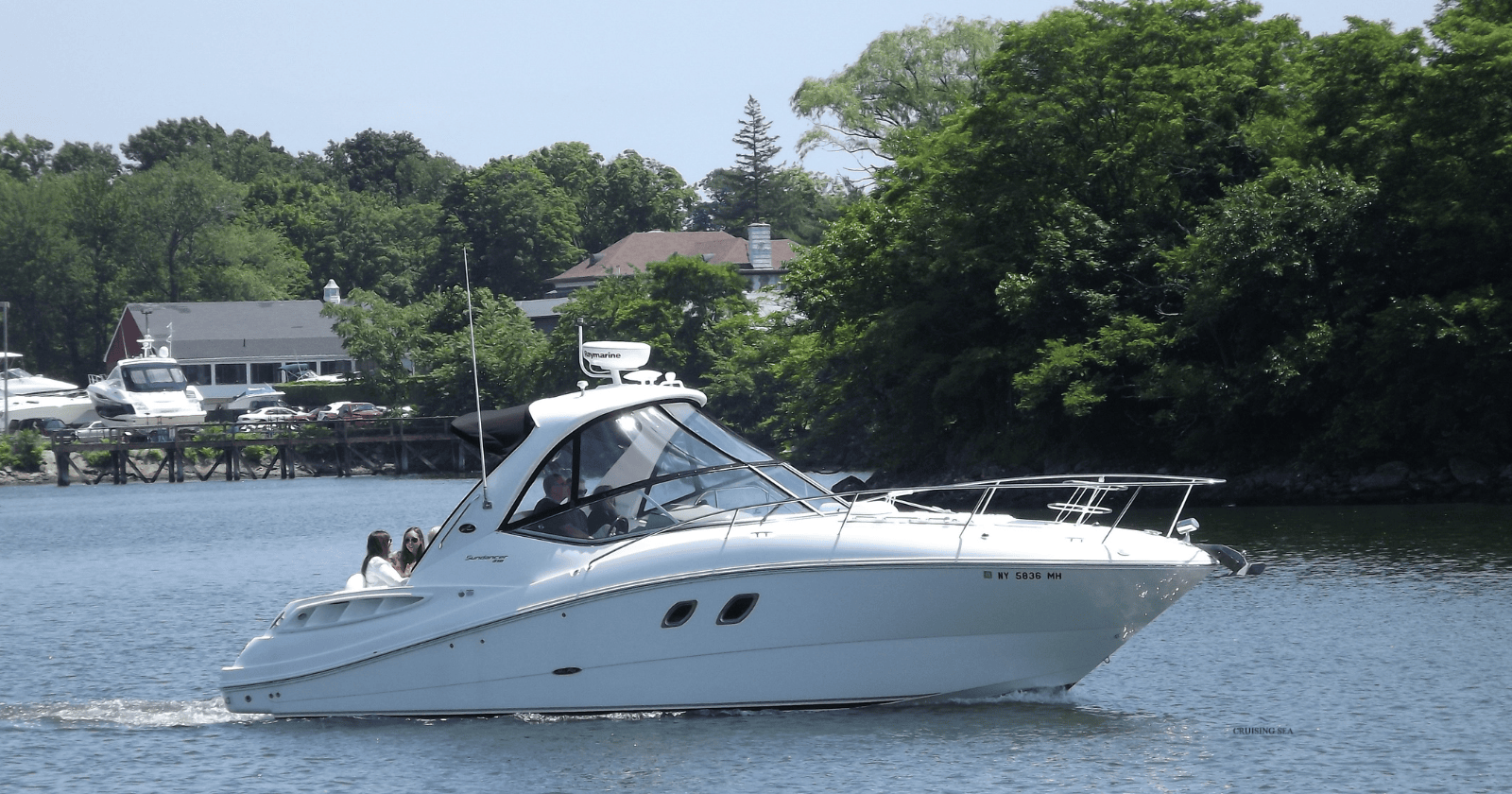Considering going boating and wondering How old do you need to drive a boat by yourself? It’s a common question among many boaters, and the answer can vary depending on several factors, such as your location and the type of vessel you plan to operate. Understanding the age requirements and regulations surrounding solo boat operation is crucial to ensure a safe and legal boating experience. So, let’s get started!
Boating Age Requirements by State
Boating laws in the United States can vary from state to state. It’s essential to know the specific age and certification requirements before hitting the water to ensure you’re compliant with local regulations and, most importantly, safe.
California Boating Laws
In California, you must have a California Boater Card to operate a boat if you are under 40 years old. The minimum age to drive a boat alone is 16. Teens between 12 and 15 may operate boats if accompanied by an adult over 18 with a valid Boater Card. Personal Watercraft (PWC) users must be 16 years old.
Requirements in the South
Alabama: You must be at least 12 years old to operate a boat. If you are under 14, you need supervision.
Florida: Operators need to be at least 14 years old and must complete a boating safety course. Additionally, anyone born on or after January 1, 1988, must have completed a NASBLA-approved boater education course.
Georgia: The minimum age is 12, and those under 16 need a safety certificate.
Louisiana: You are required to be at least 16 years old to operate a motorboat over 10 HP unsupervised.
Texas: The minimum age is 13, and a safety course must be completed for anyone born after September 1, 1993.
Northern States’ Regulations
Maine: You must be at least 12 years old to operate a vessel with more than 10 horsepower. Those under 16 need adult supervision for PWCs.
Massachusetts: Operators under 16 need adult supervision unless they have completed a safety course and are at least 12 years old.
Michigan: Those 12 to 15 need a boating safety certificate to operate motorboats. PWCs can only be operated by individuals 16 and older with a boating safety certificate.
Midwest & Great Plains
Illinois: A boating safety certificate is required for those born on or after January 1, 1998. The minimum operator age is 10 years old.
Minnesota: in Minnesota, kids as young as 12 can drive a boat if they have completed a boating safety course. For boats with more than 75 horsepower, you must be at least 16 years old.
Nebraska: Anyone under 18 must complete a boating safety course to operate a motorized boat or PWC.
South Dakota: You need to be at least 14 years old to operate a motorboat. For PWC, the same age and a safety certificate are required.
Mountain & Western States
Arizona: The minimum age to operate alone is 12 years old. Those under 12 must be accompanied by an adult.
Colorado: Individuals aged 14 and 15 can operate boats if they complete a boating safety course and have adult supervision.
Nevada: Operators must be at least 14 years old with a boating safety card. Younger children need adult supervision.
Utah: Those 16 and older can operate boats and PWCs alone if they have completed a safety course.
Pacific Northwest & Hawaii
Oregon: A boating safety certificate is required for all operators over 12. Operators must be at least 16 for PWCs.
Washington: Operators aged 12 to 15 need a Boater Education Card and adult supervision. The minimum age for unsupervised operation is 16.
Hawaii: You can operate a boat unsupervised at 15 with a boating safety certificate. Operators under 15 need to be accompanied by a certified adult.
Northeastern States
Connecticut: You need to be at least 12 years old and have a Certificate of Personal Watercraft Operation.
New York: Operators aged 10 and over need a boating safety certificate. For PWCs, you must be at least 14 with a certificate.
Pennsylvania: A boating safety certificate is required for operators born after January 1, 1982, who are at least 12 years old.
Vermont: You must be at least 12 years old and have a boating safety certificate if under 16 years old.
Other Regions
Alaska: There are no specific age requirements, but a boating safety course is recommended for all operators.
District of Columbia: Operators need to be at least 18 years old to rent and operate a boat alone. Those aged 16 and 17 need a safety certificate.
West Virginia: Youths aged 12 to 15 need a boating safety certificate to operate a boat alone. PWCs require operators to be at least 16 with a certificate.
Knowing these regulations ensures that you can enjoy boating safely and legally, no matter where you are in the United States!
Boating Education and Certification
Learning how to drive a boat by yourself involves understanding various safety and legal requirements. These include taking safety courses and obtaining the necessary licenses and certifications based on where you live.
Why Do a Boating Safety Course?
Not only is it usually required, but they also teach you the rules of the water, how to handle emergencies, and the basics of navigation. Note that not all states, but most require you to take these courses to ensure you know how to operate a boat safely.
Courses are often approved by the National Association of State Boating Law Administrators (NASBLA). You can find these classes online or in person. Topics covered include:
- Boating safety rules
- Navigation signals
- Emergency procedures
- Boat maintenance
Completing a safety course usually ends with a test, which you’ll need to pass to get your safety certificate.
How to Obtain a Boating License?
A boating license is often required to legally operate a boat. The process to obtain a license can vary but generally involves completing and passing a certified boating education course.
After completing the course, you’ll often need to apply for the license through your state’s marine or wildlife agency. There might be a fee for the license, which could cost around $36.25, as noted for some states.
Some states also have an age requirement, so make sure you meet the age and education prerequisites.
Legal Requirements and Documentation
To drive a boat by yourself, you need to know about proper registration, required licenses, and what to do if an accident occurs. Here are the main legal details you need before heading out on the water.
Registration of Your Boat
Every boat must be registered with your state’s Department of Motor Vehicles (DMV) or a corresponding agency.
Registration involves paperwork that includes your proof of ownership, which can be a bill of sale or a manufacturer’s certificate. You should also pay the necessary fees.
Some states issue a registration number and decals that must be displayed on the boat. Keep your registration certificate on board as you would a car registration.
In addition, if you’re using your boat for commercial purposes like charter services, different documentation and licenses might be required.
How to Report a Boating Accident?
If you’re in a boating accident, you must report it to the local authorities. Reporting is crucial, especially if there’s significant damage, injury, or death.
You usually have to file a report with the state authorities or the Coast Guard. Each state has specific forms and time frames for reporting accidents. Texas, for instance, requires reports within 30 days if damages exceed $2,000 or there are injuries.
Stay at the scene and provide assistance if someone is hurt or in immediate danger. Sharing contact, registration, and insurance information with all parties involved is also essential. This helps in the investigation and can be crucial for insurance claims.
Frequently Asked Questions
Q: At what age can someone pilot a jet ski on their own in Tennessee?
Tennessee requires individuals to be at least 12 years old and to complete a boater education course to operate a jet ski alone. Always ensure that the young rider is confident and knowledgeable about water safety and jet ski operation.
Q: Is there a legal age for driving a boat solo in Maryland?
Maryland allows individuals who are at least 16 years old to operate a boat alone. However, if you are younger than 16, you can still drive a boat if you are under direct supervision by someone who is at least 18 years old and has a boating safety certificate.
Final Words!
In conclusion, the age at which you can legally drive a boat varies depending on the state or country you reside in. It’s important to familiarize yourself with the specific regulations and requirements of your local jurisdiction before operating a watercraft. In most cases, you will need to meet a minimum age requirement and complete a boating safety course to obtain a boating license or certificate.
Want More Tips?
Subscribe to Cruising Sea newsletter to receive every two weeks the latest posts straight to your inbox!

Daniella has been passionate about travel, the sea, and nature for many years. As a child, she frequently traveled throughout the Mediterranean and continued with her journeys throughout her adult life.
Her experiences have created the desire within her to share her love for traveling with other passionate and adventurers who want to discover beautiful horizons and new cultures.

